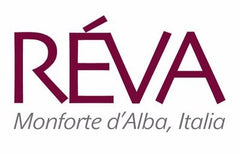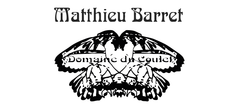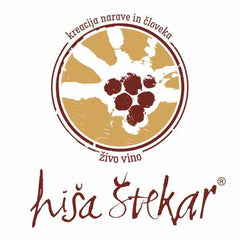104 products

- White Wine
- Sauvignon Blanc, Sauvignon Gris
- Organic, Vegan-Friendly
- Dry
- Medium Bodied
- 750ml
- 13% alc./vol
About the Winery
Réva

Réva is a winery based in Monforte D’Alba, within the Langhe area, in Piedmont, west northern Italy. Its aim is to bring the most brilliant young people of the area together, entrusting them with the task of expressing themselves in the most creative and professional way possible. This is Réva’s Wave, a dynamic team that represents the new Langhe generation, in constant communication with tradition, without the fear of reinterpreting it.
Today the vineyard sites which spread over 4 villages, Monforte D’Alba, Serralunga D’Alba, Novello and Barolo are all managed directly with the entire agronomic work done manually. Strong sustainable vineyards conduction, certified organic, they believe that their biggest challenge is not inventing anything but just define and express the beauty of the land where they live.
Behind every glass of wine there is an expression, expression of terroir, varietal, the varietal is for them everything, indigenous, they speak of the land and, last but not least, passion for what they do. Simply as that.
Press Reviews
Wine Align
92 points (2022) - Michael Godel
The name is Grey, representative three ways, of Réva’s Bianco label, the earth as its life giver and a sauvignon blanc meeting sauvignon gris growing from the Langhe “formation lequio.” In other words ancient Serravallian terroir come into being some 12 million years ago. Translates today as clay, limestone and fossil, adding up to and defined as grey marl. Just smells like wet stones, rich in mineral, as if after a rain. A place where ripeness means abundant and substantial fruit in cohorts with and defending the “sottosuolo” of elements below to do more than merely simulate but actually effect an authentic Langhe experience. Drink 2025-2030. Tasted May 2025
91 points (2022) - David Lawrason
This is a blend of sauvignon blanc and sauvignon gris - a highly unusual wine for the Langhe region, but a specialty of the youthfully re-imagined Reva estate in Montforte. It is an impressive, full flavoured, generous and well balanced wine with lifted aromas of guava/lychee, lemon and fresh herbs. It is very bright with lively acidity, considerable warmth and juicy, tart-edged finish. The length is excellent. A bit aggressive in the end so chill well. Tasted May 2025
91 points (2022) - John Szabo, MS
Réva's Langhe Bianco "Grey" is composed of 70% Sauvignon Gris and 30% Sauvignon Blanc, related but considered separate varieties, the former less effusively aromatic than the blanc version. It pours a pale-medium yellow gold colour, and offers maturing, bruised pineapple and binned apple aromatics in an advancing style, purposely no doubt considering Réva's commitment to natural winemaking and low intervention. It's also notably herbal, like dried mint or cold mint tea, fresh celery and other non-fruity components on a fairly rich and full-bodied frame with palpable extract - tannins - that provide some grip. Despite the advancing flavours, I'd recommend another year or two in the cellar for the palate to smooth out, and since it's not about the fruit in any case, those flavours will continue to develop in the savoury spectrum. Length is very good. Tasted May 2025.
- Red Wine
- Nebbiolo
- Biodynamic, Natural, Organic, Vegan-Friendly
- Dry
- Medium Bodied
- 750ml
- 14% alc./vol
About the Winery
Punset

While the vineyards that form Punset have been farmed by the Marcarino family for generations, it is truly thanks to Marina and her incredible energy that the estate is how it is nowadays. In the 1980s, she decided to pursue organic farming – a demanding choice that was rewarded by becoming the first estate to receive the organic certification in Italy. Her passion for the soil and the environment led her to embrace biodynamics and the agronomic philosophy of Manasobu Fukuoka. From one of the healthiest vineyards in Italy, Marina crafts wines that brim with life, energy, and pure terroir.
Known for the very first certified organic Barbaresco of Italy, Marina continues to show the world that you can preserve tradition and think of the future simultaneously.
Press Reviews
James Suckling
92 points
This is tasting beautifully now with strawberry, cedar, and hazelnut character. It’s medium-bodied with firm tannins that need to soften. But very pretty already. Drinkable now, but better in two or three years. Try after 2024.
Wine Enthusiast
90 points
Blue flower, underbrush and wild herb aromas mix with a whiff of tobacco. Racy and linear, the palate offers sour cherry, star anise and a hint of rusted iron alongside taut, close-grained tannins that leave a drying finish.
Wine Align
93 points - Michael Godel
Wildly aromatic of wild strawberry and sweet bitters liqueur. Highly glycerin and textural with grippy and elastic stretched tannins. A huge Neive Barbaresco with time definitely secure on its side. Drink 2022-2030. Tasted January 2020.
- Red Wine
- Syrah
- Biodynamic, Natural, Organic, Vegan-Friendly
- Dry
- Medium Bodied
- 750ml
- 12.5% alc./vol
About the Winery
Domaine du Coulet - Matthieu Barret

Matthieu Barret was born in Aix-en-Provence in 1975 and studied viticulture in Beaune.
He is the 7th generation vigneron and joined his grandfather in Cornas in 1997. Previously, his family had only been farming and selling grapes. He practices biodynamic viticulture, obtaining very low yields (23 hl/ha) and extraordinary quality. He describes his wines as being 100% grape, with a very low sulphite addition. His wines are extremely clean, and, true to the Cornas character. Domaine du Coulet was founded by Matthieu Barret’s grandfather after WWII, and over the years has supplied grapes to some of the best known producers in the Northern Rhône, including Chapoutier and Delas. While his father eschewed the agrarian lifestyle, opting instead for a career in international business, Matthieu knew early on that he wanted to be a vigneron. In 1998 at the age of only 23, he took over the family’s 25 acres of well-situated vines on the terraced hillsides of Cornas.
From the beginning, Matthieu has employed natural, organic practices and by 2002 (his second year of production) the domaine received its biodynamic certification. With each vintage, Matthieu has gained a better understanding of his vine parcels and through thoughtful experimentation, he now turns out a remarkable selection of Cornas wines that express the unique nuances of each micro-terroir. No new oak, no racking, minimal use of sulfur and no fining or filtration. Pure, sexy Syrah.
- Orange Wine
- Ribolla Gialla
- Biodynamic, Natural, Organic, Vegan-Friendly
- Dry
- Medium Bodied
- 750ml
- 12% alc./vol
About the Winery
Štekar

The Štekar family has been growing grapes in Goriska Brda since 1985. With 6 acres of vines planted in the stunning hills of western Slovenia, along with cherry orchards, Jure Štekar has committed to make wine the way his grandfather Emil taught his father: respecting tradition and avoiding invasive technologies.
Certified organic since 2006, Jure likes to play with long macerations, spontaneous fermentations and tiny SO2 amounts. His goal is to produce genuine wines that tell the story of his land and family.
Press Reviews
Jancis Robinson
17.5
Deep gold, pungent, punchy. A fickle nose that catches a flicker of Roman drains one moment and then floods the two feet above the glass with orange blossom and quince. So salty your mouth will pucker and then you get the sweetness and citrus oils and herbal bite. It's twists and twists of clementine peel and tangerine and sweet lime. It's oregano and kumquat, pink salt and sour cream. It's punky, silk-and-handcuffs, addictive. Jure Štekar's wines get more and more beautiful every year.
- White Wine
- Arneis
- Biodynamic, Natural, Organic, Vegan-Friendly
- Dry
- Medium Bodied
- 750ml
- 13.5% alc./vol
About the Winery
Punset

While the vineyards that form Punset have been farmed by the Marcarino family for generations, it is truly thanks to Marina and her incredible energy that the estate is how it is nowadays. In the 1980s, she decided to pursue organic farming – a demanding choice that was rewarded by becoming the first estate to receive the organic certification in Italy. Her passion for the soil and the environment led her to embrace biodynamics and the agronomic philosophy of Manasobu Fukuoka. From one of the healthiest vineyards in Italy, Marina crafts wines that brim with life, energy, and pure terroir.
Known for the very first certified organic Barbaresco of Italy, Marina continues to show the world that you can preserve tradition and think of the future simultaneously.
Press Reviews
Wine Align
90 points (2018) - Michael Godel
Next stage complexity emerges from this extraordinarily ulterior half and half white from Marina Macarino’s Domaine Punset in Barbaresco. Get your disco dancing shoes on with a glass of this sweet nectar, dry as the Neive hills and ready to rock.
Ne’? is the “Piedmontese” way of ending a sentence, like ‘eh in Canada. A 50-50 arneis and favortita mix, salt missive over fruit and extremely fresh. The aperitíf white that connects dialectal territory with those in the diaspora that want a taste.
- Red Wine
- Dolcetto
- Biodynamic, Natural, Organic, Vegan-Friendly
- Dry
- Medium Bodied
- 750ml
- 13% alc./vol
About the Winery
Punset

While the vineyards that form Punset have been farmed by the Marcarino family for generations, it is truly thanks to Marina and her incredible energy that the estate is how it is nowadays. In the 1980s, she decided to pursue organic farming – a demanding choice that was rewarded by becoming the first estate to receive the organic certification in Italy. Her passion for the soil and the environment led her to embrace biodynamics and the agronomic philosophy of Manasobu Fukuoka. From one of the healthiest vineyards in Italy, Marina crafts wines that brim with life, energy, and pure terroir.
Known for the very first certified organic Barbaresco of Italy, Marina continues to show the world that you can preserve tradition and think of the future simultaneously.




























